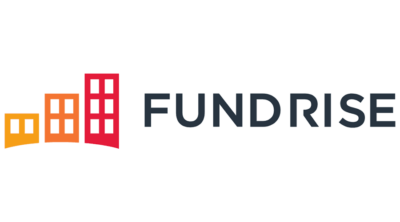If you talk to any real estate investor, they’ll probably tell you that they’ve made mistakes through the years. Mistakes are inevitable — they’re going to happen. However, your chances of making a mistake in real estate investing are quite a bit higher when you’re a beginner.
Rental properties are an excellent place for beginner investors to start as long as they know the SUPER critical things to do first. So let’s take a look at these top 10 tips for investing in rental property for beginners.
Table of Contents
- Investing in Rental Property for Beginners (10 Tips for Success)
- 1. Do Some Serious Self-Analysis
- 2. Crunch Numbers Before, Not After
- 3. Leave Room for Unexpected Costs
- 4. Be Picky About Location
- 5. Know Your Margins
- 6. Clean, Functional, and Liveable
- 7. Protect Yourself
- 8. Tenants Are Key
- 9. Pay Attention to Your Property
- 10. Think About the End Game
- Investing in Rental Properties for Beginners: Is It Worth It?
Investing in Rental Property for Beginners (10 Tips for Success)
If you’re going to become a real estate investor, you need to do it right. That’s why I’ve compiled these tips for success that you must review BEFORE you get started.
1. Do Some Serious Self-Analysis
There is no denying the fact that real estate properties can be great investments. Even if you’ve never invested in real estate before, you can make money if you are careful about the process. However, the stories you hear about investment experts making millions of dollars after getting involved in real estate did not do it on their first property.
In fact, their first property probably cost them a few gray hairs and some surprise expenses. Make sure you are cut out for the stress of investing in real estate as a beginner — it will be a bit higher because everything is new and exciting.
Does becoming a landlord make you cringe?
There’s an easier way to invest in rental property and collect on the returns.
2. Crunch Numbers Before, Not After
There’s quite a bit of number crunching to do when investing in rental property for beginners. But, first, you must determine how you will pay for the rental and how to keep it going.
You MUST figure out the math before you buy, not after. For instance, figuring out the best financing options for a rental property (which may not be as straightforward as you think). The lower the interest rate you get, the higher your margins will be.
Determine what you expect this rental property to make and work backward from there to figure out how to make it work.
3. Leave Room for Unexpected Costs
As a beginner real estate investor, you won’t correctly predict the unexpected expenses coming your way. Even if you’re a master at crunching numbers, you have to leave room for unforeseen costs.
I’ll warn you about a few things to keep in mind when figuring out the numbers on your property:
- How will you cover loan costs when there are no tenants?
- Can you cover those expenses when a tenant breaks the refrigerator or calls about a hole in the roof?
- If your interest rates are not fixed, what will happen when they go up?
- How have property taxes in that area been trending?
4. Be Picky About Location
I have to go back to real estate 101 here for a minute and talk about location, location, location. The number one rule of investing in real estate is to purchase a home in a good location.
When purchasing investment properties for tenants, this becomes even more important. If you buy a rental property in an area where nobody wants to live, how will this help you?
Think about the people that are going to want to live in your home. Why do they want to live there? Are there businesses or schools nearby? Be very careful about what the home has to offer and secure a great location.
5. Know Your Margins
You will want to aim for a return of 10% or higher on your money for the most part. People love rental properties because they can typically make much more of a return on their investment than they can with other investment strategies.
Before you start this process, though, you need to know what your margins look like. This is only going to help you when it comes to negotiating rental costs and renovating the property.
For instance, if the local market has tenants who can only afford $1,200 a month for your type of property, but you have the rent set at $1,500, your margins are going to take a big hit when you lower it.
Looking for a cheaper way to diversify your portfolio?
Crowdfunding can be your entry into the world of real estate investing.
6. Clean, Functional, and Liveable
I’ll warn you about something, and someday, you’ll thank me for it.
Tenants don’t care about your rental property investment.
People will live, and they will do what they do. They will hang pictures, poke holes in the wall, forget to wipe up spills on the wood floors, and paint your guest bedroom purple. This WILL happen. I warned you.
Aim to make the rental property clean, functioning, and liveable. Do not purchase high-end fixtures and systems if they are outside of your budget. This is going to cut into your overall profits, and things will get destroyed.
For high-end rental properties, this may change a bit. But, for the most part, a place needs to be appealing to rent but forgiving to your budget as well.
7. Protect Yourself
Insurance is necessary when you’re a beginner investing in rental property. Make sure that you have homeowners insurance, but you may also want to look into something like landlord insurance. With landlord insurance, you will have protection against liability issues as well.
Anytime you invest, you take a legal risk, and rental property is no exception. So this could be the most important of all the things on this list of tips that I’m giving you.
Although insurance will add costs for you, it will be well worth the money you pay.
8. Tenants Are Key
Almost as important as the location of your investment property are the tenants you choose to live in the home. Choosing bad tenants is going to become a major headache. Don’t be afraid to run background checks, have a realtor help you, and go with your gut if you feel like something is off.
If you don’t want dogs in your rental, don’t accept dogs. If you have a strict no-smoking policy, don’t secure a tenant that smokes. However, the rental market can go up and down, and it gets stressful when there are no interested tenants.
Important tip: No tenant is going to be better than a bad tenant.
9. Pay Attention to Your Property
Investing in a rental property is just the start of your journey. Once you fix things up and get a tenant in place, you still have quite some work to do. Pay attention to the property. If a tenant knows you will come over and inspect the place, they will keep it in better condition.
In addition, tenants like to know that you care about the home (and them), instead of being a person who simply collects the check.
Have you ever eaten at a great restaurant and noticed that the owner walks around to greet guests? This is no coincidence.
10. Think About the End Game
It may seem odd to think about your end game in the world of rental properties before you even begin. However, you should have a general idea of where you’re headed with your real estate business.
Is this house going to be your only rental property investment? Are you working to build a portfolio? Do you plan to sell it in a few years?
It’s good to have a general idea of your plan to ensure you’re meeting your goals and making the right decisions along the way. Your end game will determine how you treat your investment along the way.
Tired of touring house after house without an offer being accepted?
You don’t have to put up with the hassle when you use a real estate crowdfunding platform.
Investing in Rental Properties for Beginners: Is It Worth It?
At this point, you may feel a little overwhelmed with all of the information I just threw at you. That’s a good thing, though. It means you care and are aware of what you’re signing yourself up for.
Making money with rental properties takes time, attention, and commitment. If you’re ready to get started, then go for it. But, be cautious about the steps you take. Trust me with these tips, and you’ll be well on your way.
Disclosure: We earn a commission for this endorsement of Fundrise.


